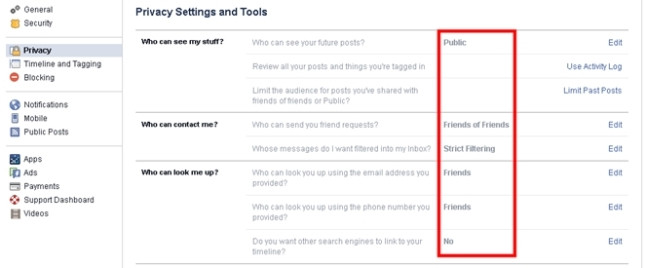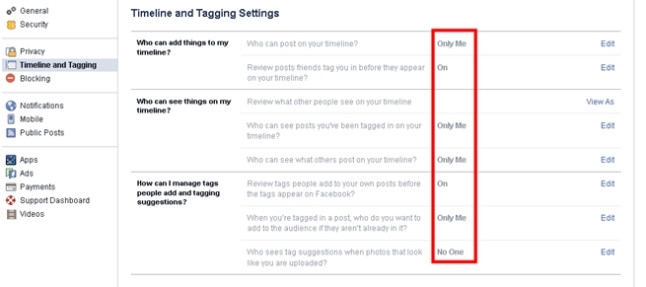Every year, there is a resurgence of Facebook malware that in some way or the other would result in the malware posting on your Facebook wall, and to make it worse, would either post on your friends' walls or tag them.
This method allows the malware to propagate and to garner greater visibility by targeting Facebook users. However, the content in most cases are porn images and they may relate to some fictitious, eye-popping, attention-grabbing news.
Fortifying user accounts and strengthening their security has taken precedence; however, when it concerns social networking, the entire ideology of a "secured account" changes dramatically. It's not just about your own account; it is also related to those accounts which belong to your relatives, friends and colleagues.
We may consider splitting the issues created by Facebook malware into two distinct parts:
1: The malware
The malware spreads itself by posting links to a pornographic image or video from the account of previously infected users. The postings generally tag no more than 20 friends of the infected. If and when a user opens the link pertaining to the post, the video begins to play, but then stops and asks the viewer to install a fake Flash player containing a Trojan downloader with the actual malware. This malware can even manipulate keystrokes and mouse movement.
2: Propagation
In order to tackle the menace associated with malware, the following tips and tricks ensure you as the account holder do not get infected, nor will your account assist the malware in propagating.
Tips for securing your computer
1: Do not click on shortened or unknown links: Facebook spammers mostly disguise links to suspicious Web sites by using URL shortening services, which misleads you to think you are clicking on a legitimate article or blog. These links lead to sites that can eventually install malware or spyware on your device.
2: Know what to look for: Facebook spammers get more creative on various tactics to make you fall for something harmful, and try to be elusive not to get spotted. If you notice any one of the following traits on a wall post, group or page, it's recommended that you don't click on it.
3: Avoid giving authorisation to unknown games and apps: If you are enticed to permit a Facebook program to post on your own and your friends' walls, then you should think twice. Close the game or app that can access your private information and networks at any time. Why would you give access to all of that information to a real stranger?
4: Look for telltale signs of spam: If you see any of your friends posting multiple links or videos to multiple friends' walls, then it's possibly the work of a spammer. Eg, if you see a wall post from a friend stating Facebook finally offers a way to see who views your profile, then never believe it or click on it. In addition, pages that warn they are not authorised by Facebook could be harmful to your computer.
5: Take action as soon as possible if you fall for a spam link or page: There are a few ways you can handle the situation if you find out you've been spammed:
* Remove spam wall posts by either clicking the "X" to the right of the post, or marking it as spam via the same dropdown menu.
* Get rid of games that may be spam by going into "Account Settings", and then "Manage Apps". There you can edit and remove permissions.
* Change your Facebook password.
* Consider enabling secure browsing via Facebook Security settings.
* Prevention is always better than cure! Install any eScan Anti-Virus or Internet Security Suite software for home and small office to perform proactive and regular security checks on your computer.
However, the abovementioned tips would appear useless when one of your contacts on Facebook is affected by Facebook malware. Hence, you protect yourself and to stop the malware from propagating, ensure your Facebook account is configured as shown in the below mentioned screen-grabs.


These settings, when configured as shown above, would not only safeguard your Facebook timeline from the spam posts, but also those which might be posted through the accounts of any of your friends. It would also stop the tags from being displayed directly on your timeline.
Share
eScan
eScan, one of the leading anti-virus and content security solutions for desktops, smartphones and servers, is developed and marketed by MicroWorld. It is powered by innovative and futuristic technologies, such as MWL Technology, DIRC Technology, NILP Technology, and sophisticated anti-virus heuristic algorithms that not only provide protection from current threats, but also provides proactive protection against evolving threats. eScan provides 24x7 free remote support facility, integrated in the software to help customers to get their malware-related issues resolved in the fastest possible time-frame. It has achieved several certifications and awards from some of the most prestigious testing bodies, notable among them being AV-Comparatives, Virus Bulletin, AV-Test, ICSA, and PCSL labs. Combining the power of various innovative technologies, eScan provides multi-level real-time protection to digital devices and networks. For more information, visit www.escan.co.za.
Editorial contacts